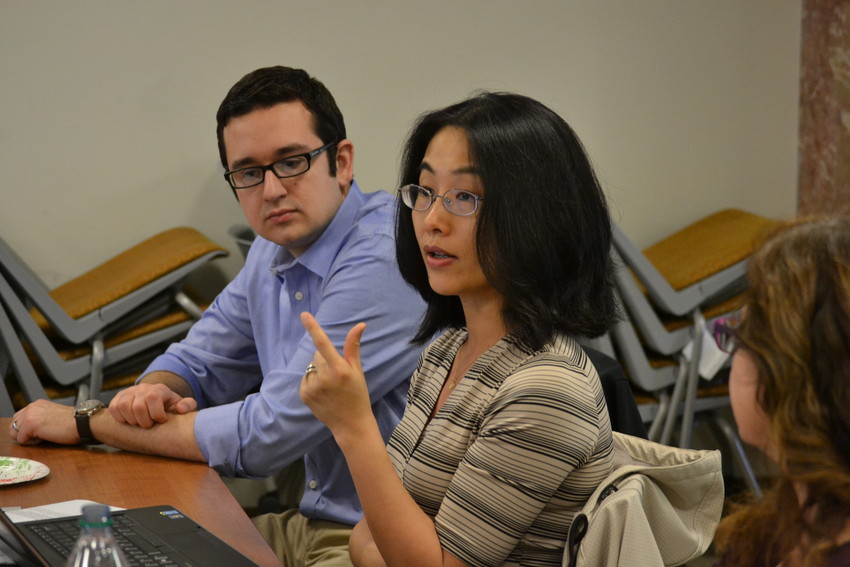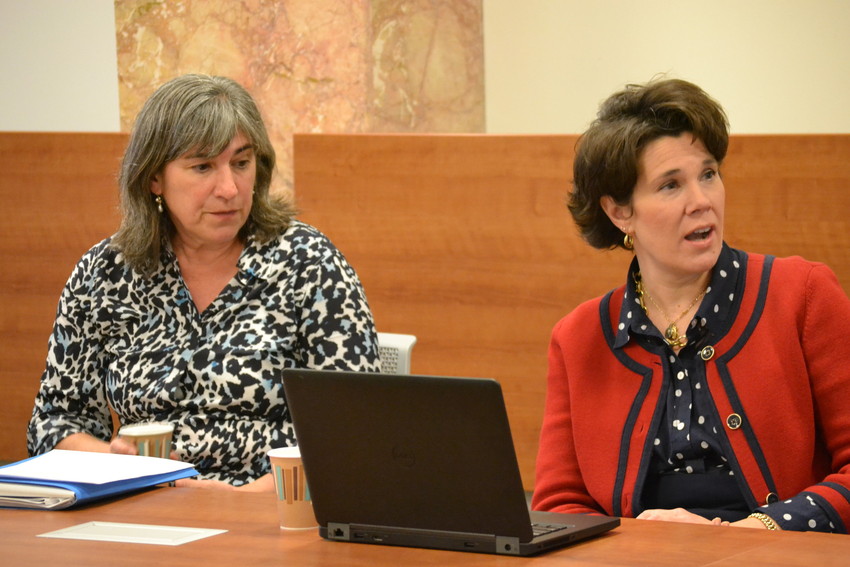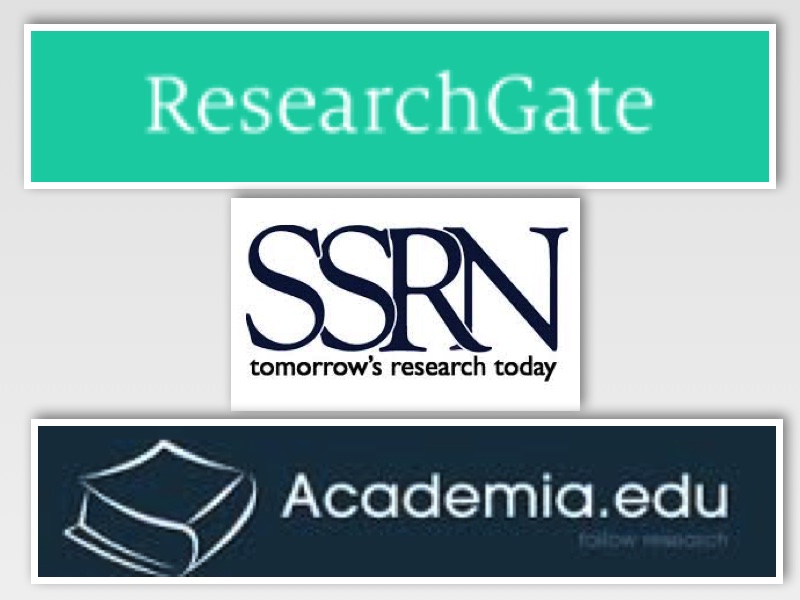Villanova Faculty Discuss Scholarly Social Networks
As scholarly social networks increasingly rise to the top of searches for academic literature on the free web, Falvey Memorial Library, on Wednesday, March 16, convened a discussion group of faculty who are active on ResearchGate, Academia.edu and Social Science Research Network. Faculty from the School of Business, Colleges of Nursing, Engineering, and Liberal Arts and Sciences were represented as well as liaison librarians and technologists. The discussion—introduced by way of a brief presentation (imbedded below) defining scholarly social networks, outlining their history, features and controversial practices and policies—quickly took off as faculty shared their reasons for joining these networks and also their concerns about using them.
 One professor commented “They’re a good way to get your name out there.” A consensus quickly coalesced around the notion that academic social networks are useful for disseminating research, both within a field and to broader audiences. Other reasons cited for participation in scholarly social networks include keeping up with peers’ research output, staying current with research trends and getting metrics, such as counts for article views or downloads to gauge research impact as alternatives to citation counts. Google Scholar Profiles was mentioned as an alternative or as adjunct to the tracking of citation activity with beneficial and easy-to-set privacy settings. An engineering faculty member observed that funding agencies favorably notice academic social network participation.
One professor commented “They’re a good way to get your name out there.” A consensus quickly coalesced around the notion that academic social networks are useful for disseminating research, both within a field and to broader audiences. Other reasons cited for participation in scholarly social networks include keeping up with peers’ research output, staying current with research trends and getting metrics, such as counts for article views or downloads to gauge research impact as alternatives to citation counts. Google Scholar Profiles was mentioned as an alternative or as adjunct to the tracking of citation activity with beneficial and easy-to-set privacy settings. An engineering faculty member observed that funding agencies favorably notice academic social network participation.
 Faculty also noted that the benefit of scholarly social networks “depends on where you are in your career.” Early career scholars who are building their research networks reap greater benefits than well-established researchers. One faculty member found it simply “impossible to keep up with Researchgate.” Researchgate solicits participation in questions forums. Faculty expressed concern about copyright violations because the onus for securing copyright permissions rests on the participant, not on the online network. Librarians questioned the sustainability of Academia.edu and Researchgate due to their heavy reliance on venture capital and seemingly narrow advertising appeal.
Faculty also noted that the benefit of scholarly social networks “depends on where you are in your career.” Early career scholars who are building their research networks reap greater benefits than well-established researchers. One faculty member found it simply “impossible to keep up with Researchgate.” Researchgate solicits participation in questions forums. Faculty expressed concern about copyright violations because the onus for securing copyright permissions rests on the participant, not on the online network. Librarians questioned the sustainability of Academia.edu and Researchgate due to their heavy reliance on venture capital and seemingly narrow advertising appeal.
In the end, the faculty expressed enthusiasm about ways the University could fulfill the roles academic social networks currently fill. For some, the networks serve as an unofficial personal website. In the past, with varying levels of commitment, the University encouraged researchers to build personal websites by offering training and access. Librarians in particular noticed that academic social networks may be achieving some of the functions of open access journal publishing and open access institutional repositories. Villanova has a faculty bibliography, but not an institutional repository. Several attendees shared their successes with using other social media such as Twitter for disseminating their research findings; as a result faculty expressed spirited agreement that workshops on social media promotion are sorely needed.
Look for future Academic Integration hosted faculty discussions on the intersection of publishing, research and scholarly communication.
0 Comments »
No comments yet.
RSS feed for comments on this post. TrackBack URI
